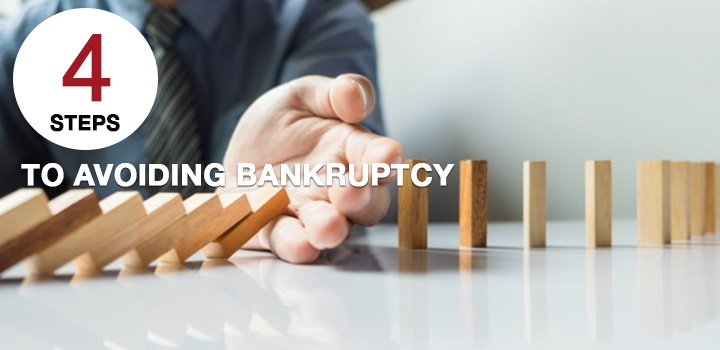How to Avoid Debt Collection Scams in Arizona
By German Yusufov | Updated May 24, 2020
Debt collection scams are on the rise. In order to avoid being taken in by a scammer, read this article and find out what to look for when dealing with debt collectors.
Debt Collectors Sanctioned for Deceptive Practices
By German Yusufov | Updated May 24, 2020
The Consumer Financial Protection Bureau (CFPB) recently sanctioned two of the largest debt collectors for deceptive and abusive debt collection practices. The two entities are Portfolio Recovery Associates and Encore Capital Group, Inc. Encore’s subsidiaries are Midland Funding LLC, Midland Credit Management, and Asset Acceptance Capital Corp. These entities buy delinquent or charged-off debt from […]
4 Steps to Avoiding Bankruptcy in Arizona
By German Yusufov | Updated May 24, 2020
I often get asked by prospective clients in Tucson and Mesa if bankruptcy is the only option available to deal with their debt problems. The truth is, bankruptcy is not the only option, and several alternatives are available for avoiding bankruptcy. Unfortunately, by the time most people decide to go see a lawyer, bankruptcy is […]
The Basics of Financial Planning and Dealing with Debt
By German Yusufov | Updated May 24, 2020
As a bankruptcy attorney, I am used to counseling individuals and families who are struggling with debt. But what I still cannot get used to seeing is how well-meaning people, who want to do what they can to pay off their debts, end up making their debt problems much worse by using incorrect debt management methods. And this is almost always avoidable.
Can A Creditor Come After Me If I Co-Signed For A Loan?
By German Yusufov | Updated May 24, 2020
The short answer is yes. I see this situation all the time: parents co-sign loans for their children, family members co-sign for each other, and friends co-sign for friends. Then, when the primary debtor stops paying, the creditor tries to collect from the co-signer. At that point, there are four basic ways for the co-signer to handle the debt: (1) dispute it (e.g. because the debt is too old, or because it is unenforceable for some other reason), (2) try to settle with the creditor, (3) file for bankruptcy, or (4) not do anything. The last option should only be used after careful consideration of all alternatives, and generally only if the co-signer is judgment-proof (meaning the co-signer does not have assets that could be taken by the creditor). Of course, there is also a fifth option—to get the primary debtor to pay the debt—but oftentimes the primary debtor simply does not have the resources to pay. Afterall, the likelihood of non-payment by the primary debtor is probably why the creditor required a co-signer in the first place.

